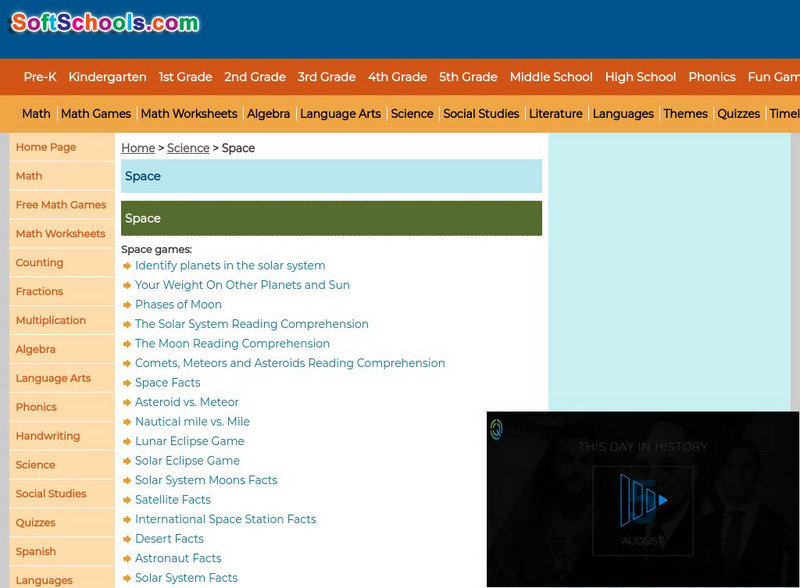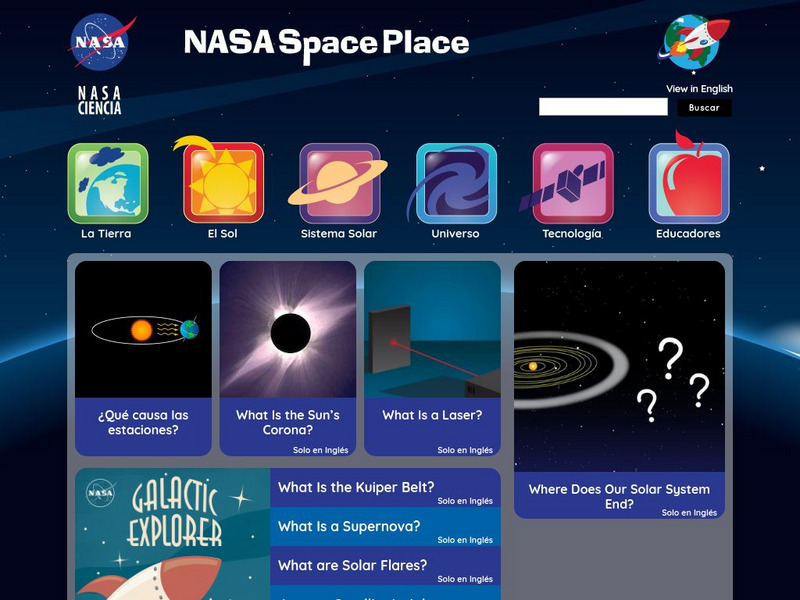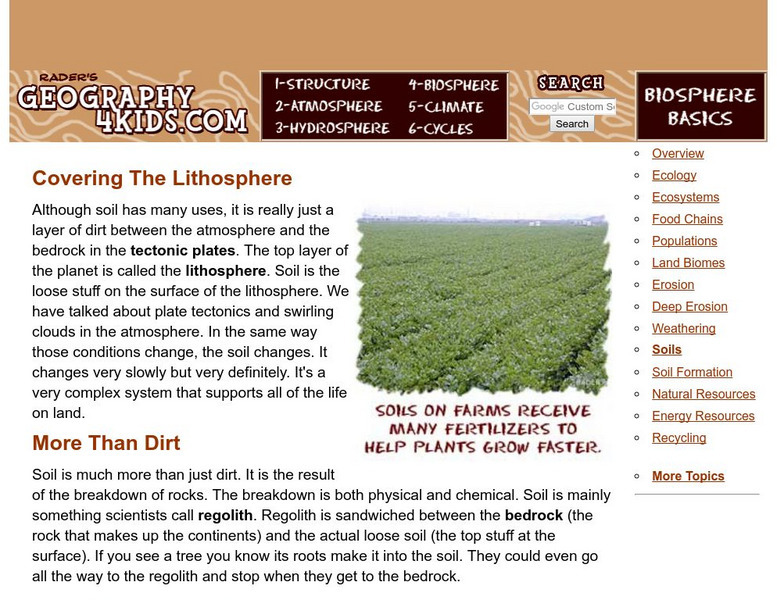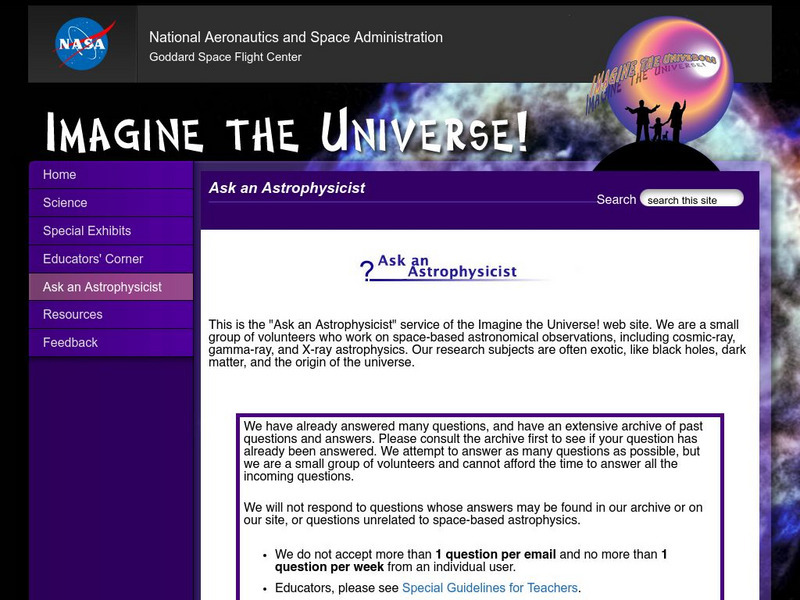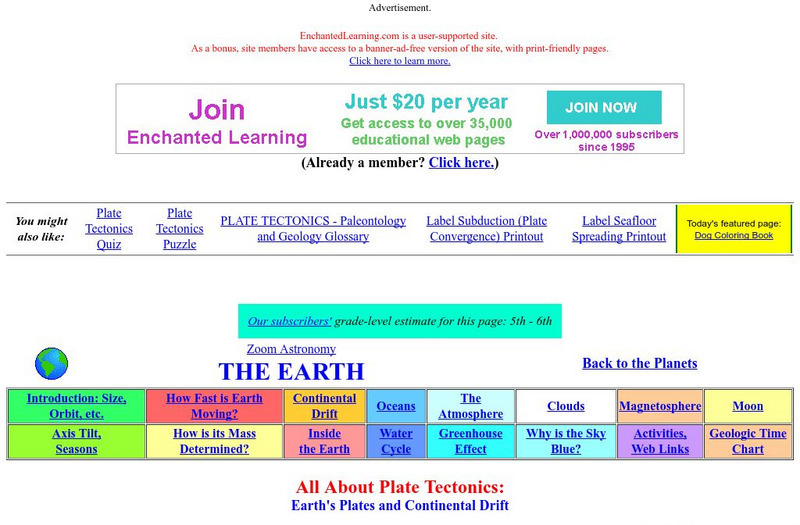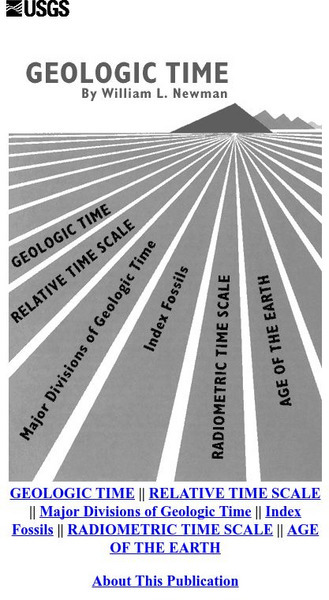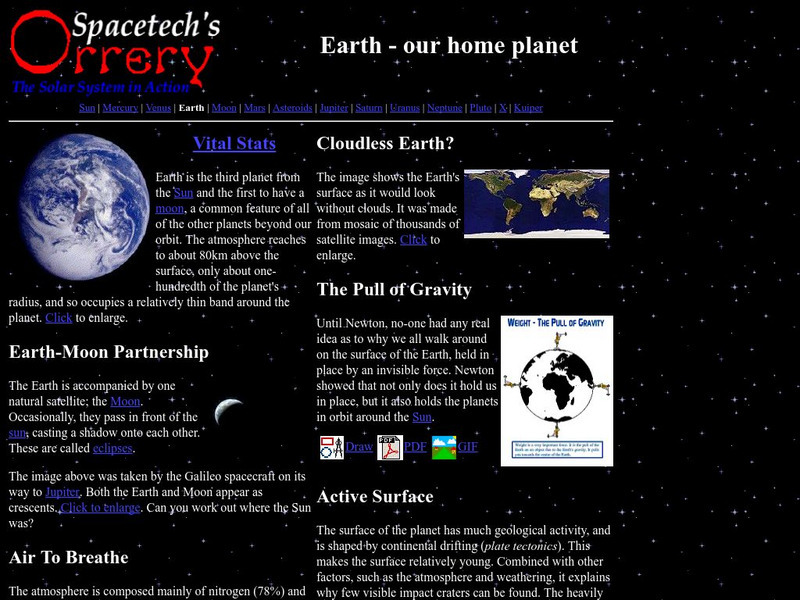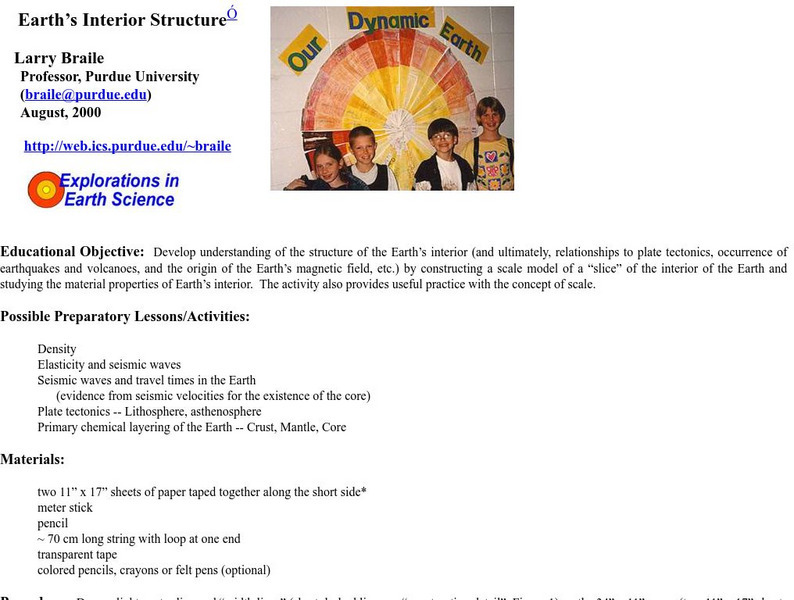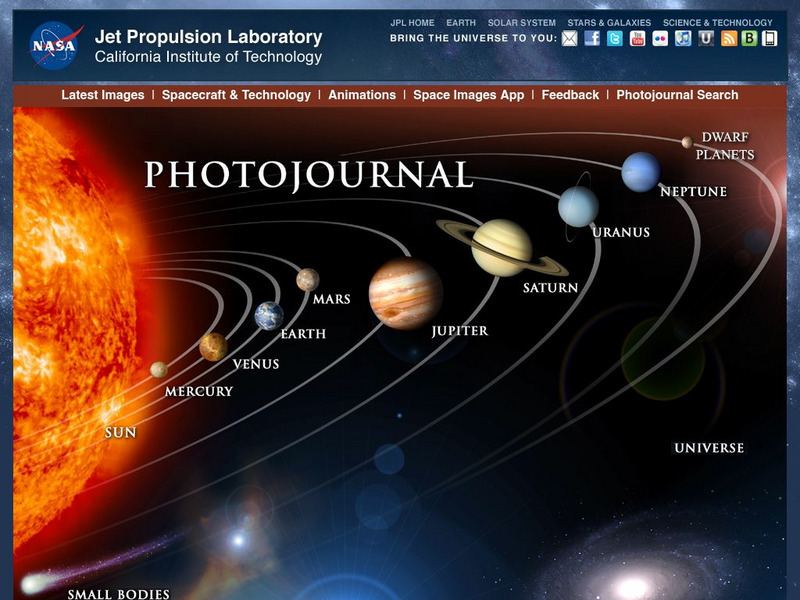Hi, what do you want to do?
Johns Hopkins University
New Horizons Website
This site from the Solar System Exploration section of NASA provides an overview of the space mission to Pluto, Charon, and the fringes of our Solar System. It describes the Kuiper Belt, and the objects involved with it, provided links...
Other
Science Hobbyist
This is a fun site filled with odds and ends of science. Wacky and amazing. Fun site to browse for ideas.
Geography 4 kids
Geography4 Kids: Biosphere: Erosion
What is erosion? Here's a brief look at the process of erosion ..what it is, how it happens, effects. Useful for the younger researcher.
Soft Schools
Soft Schools: Space: Solar System Interactives
Identify the planets in our solar system and discover how much you weigh on another planet with these space interactives.
NASA
Nasa: Space Place
In this site you can explore, do and play games related to space, solar system, our planet and people and technology.
Geography 4 kids
Geography4 Kids: Biosphere: Soils
Get the full picture of what soil is offered by Geography4Kids.
Merriam-Webster
Merriam Webster: Dictionary Illustration: Solar Eclipse
Basic diagram of a solar eclipse illustrates the relative positions of the sun, moon, and earth.
A&E Television
History.com: The Space Race: Interactive Universe
A virtual journey through space offers photos and facts about Earth and its neighboring planets, comets, other celestial bodies of the Solar System, and the Milky Way and Andromeda galaxies.
NASA
Nasa: Imagine the Universe: Speed of Earth's Rotation
Presents an informative answer to the question "What is the speed of the turning of the Earth?"
Scholastic
Scholastic: Dirtmeister's Science Reporters: Erosion
Dirtmeister describes erosion, how it works, different causes, and types of weathering. Included are questions to help get you thinking about erosion in your area.
Annenberg Foundation
Annenberg Learner: Journey North: Judy Brophy: The Sun's Daily Cycle
Impressive animated slideshow presentation on the sun's daily cycle and how the sunlight changes hour by hour over the course of a day. Includes a teacher guide with lesson plan ideas and activities.
NASA
Nasa Star Child: Star Child
StarChild from NASA defines and describes the Solar System in a simple and easy-to-understand manner. The website is broken down into two versions for the student, grade school and junior high.
Other
The Apollo Society: The Solar System
Contains a small set of images of solar system objects and a series of links to information about all solar system objects. Solar System Tours link to excellent image collections.
Other
Paleomap Project
Virtual reality animation map showing continental drift from 200mya to the present. The animation map is small but effective in showing the positions of the land masses.
Enchanted Learning
Enchanted Learning: All About Plate Tectonics
Simple discussion of plate tectonics and Pangaea. Includes maps and interactives.
US Geological Survey
Usgs: Geologic Time
This large U.S. Geological Survey site offers a look at the age of the earth, how radiometric dating is used to calculate it, the major divisions of geologic time, and the classification and use of fossils.
Fourmilab Switzerland
John Walker: Earth and Moon Viewer and Solar System Explorer
This website provides numerous images of the Earth and moon, shown from various vantage points.
Other
Spacetech's Orrery: Earth Our Home Planet
This site provides a very interesting overview of our home planet, Earth. Content includes a focus on the atmosphere, the pull of gravity, and the active surface.
Smithsonian Institution
National Air and Space Museum: Looking at Earth
Resource provides information on studying Earth from space. Content includes many satellite images, as well as information gathered for environmental research, and many educational resources.
Purdue University
Purdue University: Earth's Interior Structure
Purdue University provides a great lesson plan for learning about the Earth's interior structure. Focuses on the crust, mantle and core. Also includes examples and great charts that young scholars will enjoy looking at.
Extreme Science
Extreme Science: How Old Is the Earth?
We say Earth is 4.6 billion years old, but how do we know? How do we measure its age? This article focuses on these questions and how long life has been on Earth.
University of Victoria (Canada)
Weather Watch: Water Cycle
Excellent discussion and illustration of the water cycle. Explained in an easy to understand format.
NASA
Nasa: Planetary Photojournal
This NASA site provides access to publicly released images from various Solar System exploration programs.
NASA
Nasa: Planetary Data Sytem: Welcome to the Planets
Collection of images, with vocalized explanatory captions, of the planets acquired by NASA as part of its exploratory space programs.








